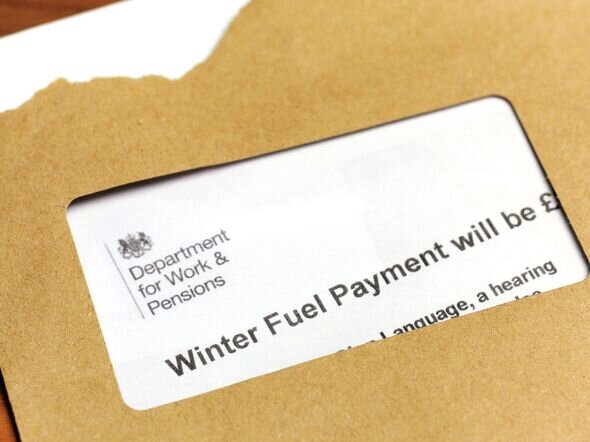Let’s Get Your Business Taxes Right From the Start...
Starting a business is exciting, but tax mistakes early on can lead to unexpected bills, missed reliefs, and even HMRC penalties.
From choosing the right structure to registering at the right time, new business owners often underestimate the importance of tax planning, and that can cost you.
This guide walks you through the key startup tax essentials, step by step. And to make things easier.
Let’s break it down so you can build your business on solid financial ground.
Starting a business is exhilarating, but UK tax obligations can feel like navigating a maze blindfolded. Many are drawn to entrepreneurship by the desire to become their own boss, enjoying the freedom and responsibility that comes with running your own venture.
Understanding your tax responsibilities from day one prevents costly mistakes and penalties.
Choosing the right business structure impacts everything from your personal liability to how much tax you’ll pay. Getting registration right establishes your business legitimately with HMRC and sets you up for long-term compliance.
It’s also crucial to choose and register your business name early, ensuring it’s memorable, aligns with your brand, and is legally available.
The UK’s first personal tax app, Pie tax, helps you handle startup tax obligations without spreadsheet headaches. Or if you’re just here to get to grips with it all, let’s break it down, remember, every successful venture starts with a strong business idea.

What Does Starting a Business Mean for UK Tax?
You must register with HMRC within 3 months of trading to avoid penalties. This isn’t optional - it’s a legal requirement that kicks in as soon as you start selling goods or services. Registering for self employment with HMRC is essential to ensure you meet your legal obligations and avoid fines.
Different business structures have different tax obligations. As a sole trader, you’ll pay income tax on profits, while limited companies pay corporation tax instead. Sole traders and partners are required to pay tax through the self-assessment system.
Self-employed individuals need to complete Self Assessment tax returns annually. The tax year runs from 6 April to 5 April the following year.
Your registration determines which taxes you’ll pay. Beyond income or corporation tax, you might need to register for VAT or PAYE if you employ staff.
Research and Planning for Your New Business
Starting a business is an exciting journey, but the foundation of any successful business lies in thorough research and careful planning. Before you dive in, it’s essential to develop a business idea that solves a real problem or meets a specific need in the market.
Take the time to conduct detailed market research and market analysis, this will help you understand your target market, spot market trends, and assess the competition.
Knowing what other businesses are doing and identifying niche markets can give your new business a competitive edge.
Choosing the right business structure is another crucial step. Whether you decide to operate as a sole trader, set up a limited company, or form a partnership, each business structure has its own tax implications and legal requirements.
Sole traders are personally responsible for business debts, while limited companies are legally separate from their owners, offering more protection but also more administrative responsibilities.
Selecting the best business structure for your needs will impact everything from how you pay corporation tax or income tax, to your ability to raise money and manage liability claims.
A well-crafted business plan is your roadmap to success. Your business plan should outline your business model, goals, target market, marketing plan, and financial projections.
Include a thorough market analysis, a clear description of your product or service, and a strategy for your marketing efforts whether that’s through social media platforms, online courses, or direct sales. A successful business plan not only helps you stay focused but is also essential if you’re seeking small business loans, a business grant, or investment.
Managing your finances from the outset is vital. Open a dedicated business bank account to keep your personal finances separate from your business account.
This makes it easier to track income and expenses, and ensures you’re ready for tax time. Understand your tax obligations early, whether you need to pay corporation tax as a limited company, or income tax and national insurance as a sole trader.
Planning ahead for these costs will help you avoid surprises and keep your cash flow healthy.
Don’t overlook the legal requirements for starting a business. Register your business with Companies House if you’re setting up a limited company, and make sure you have any necessary licenses or permits for your industry.
Protect your business and yourself with public liability insurance, which can cover you against liability claims and property damage. If you’re operating from business premises, consider commercial property insurance as well.
Finally, invest time in developing a marketing plan that outlines how you’ll reach your potential customers. Research your competitors, stay on top of market trends, and be ready to adapt your strategies as your business grows.
Whether you’re selling products or services online, or opening a home based business, a clear marketing plan will help you connect with your target market and build a loyal customer base.
By taking these steps, researching your business idea, choosing the right business structure, writing a successful business plan, opening a business bank account, and meeting all legal requirements, you’ll be well on your way to building a thriving and profitable business.
Remember, the time you invest in planning now will pay off as your business grows and succeeds.

How to Register Your Business with HMRC
For sole traders, registration is straightforward through the HMRC website. You’ll need your National Insurance number and some basic personal details.
Limited companies must register with Companies House first. This is done Online and can be completed in 24 hours. After that, you’ll register for corporation tax.
If your turnover will exceed £90,000, you need to register for VAT. Many businesses register voluntarily below this threshold to reclaim VAT on purchases.
You should also check with your local authority to find out if you need any licenses or permits to operate your business at your chosen location.
Set calendar reminders for key dates. The self-assessment registration deadline is 5th October after the end of the tax year in which you started trading.
Choosing the Right Business Structure
Limited companies offer tax planning opportunities. You can take income as a mix of salary and dividends, potentially reducing your overall tax bill.
A sole proprietorship is the simplest business structure, making it easy to start and manage. However, as a sole proprietor, you are personally liable for all business debts and obligations.
Partnerships split profits between partners, with each paying tax on their share. There’s a separate partnership tax return plus individual self-assessments.
Limited Liability Partnerships (LLPs) combine partnership tax treatment with limited liability protection. They’re popular with professional service firms.

Tax-Deductible Startup Costs
Many expenses incurred before you even start trading can be claimed. HMRC allows pre-trading expenses from up to 7 years before launch.
Office equipment, website costs, and professional fees are typically tax-deductible. You may also be able to claim tax relief on certain business expenses, which can reduce your taxable income. Keep receipts for everything, even small purchases.
If you have business premises, remember that business rates are charged on most commercial properties. Small businesses or home-based businesses may be eligible for business rates relief.
Working from home? You can claim a proportion of household bills based on the space and time used for business purposes.
Vehicle expenses need careful tracking. You can claim mileage at HMRC’s approved rates or a percentage of actual running costs if the vehicle is used for business.
Rural businesses may have access to specific grants or support programs designed to help entrepreneurs in rural areas.
Record-Keeping Requirements
Open a separate business bank account from day one. Mixing personal and business finances creates a nightmare at tax time.
Digital record-keeping is increasingly important with Making Tax Digital. Many free and low-cost apps can help you track income and expenses.
Maintaining accurate financial statements, such as balance sheets and income statements, is essential for understanding your business finances and meeting tax obligations.
Keep records for at least 5 years after the relevant tax return deadline (6 years for limited companies). HMRC can investigate that far back.
You’ll need evidence for all claims. Bank statements alone aren’t enough - keep invoices, receipts and contracts to support your tax return entries.
When I started my first business, I kept receipts in a shoebox. Come tax season, I spent three painful weekends sorting through crumpled papers. Don’t make my mistake, establish a filing system immediately.

Common Startup Tax Pitfalls
Many entrepreneurs underestimate the importance of tax planning and market research, which can lead to costly mistakes.
Underestimating tax payments leads to cash flow problems. Most businesses face similar challenges with cash flow and tax obligations, so it's crucial to set aside about 25-30% of your profits for tax from the beginning.
Seasonal demand can also impact revenue, making it important to plan for fluctuations throughout the year.
Missing registration deadlines triggers automatic penalties. Late registration for self-assessment costs £100, with further penalties for continued delay.
Claiming for personal expenses is tempting but risky. HMRC looks closely at items like clothing, meals and entertainment.
Not claiming all eligible allowances leaves money on the table. Research tax reliefs specific to your industry, like R&D credits for innovative businesses.
Final Thoughts
Getting tax right from the start saves headaches later. Many new business owners find professional advice during setup pays for itself many times over.
Tax requirements change regularly, so staying informed is part of business ownership. HMRC's website offers guidance, but it's worth following tax news too.
Remember that good tax planning isn't about aggressive avoidance. It's about understanding the rules and making informed choices for your business.
Pie tax: Simplifying Business Tax
Getting your tax affairs right from the start sets you up for long-term business success. Pie tax makes this process significantly easier.
The UK's first personal tax app offers real-time calculations that show exactly what you owe as you enter income and expenses. This eliminates nasty year-end surprises that can derail a new business.
Whether you're a sole trader or limited company director, our multi-income dashboard helps you track various revenue streams in one place.
Pop over to explore the Pie tax app if you'd like to see how we can take the stress out of your business taxes.










